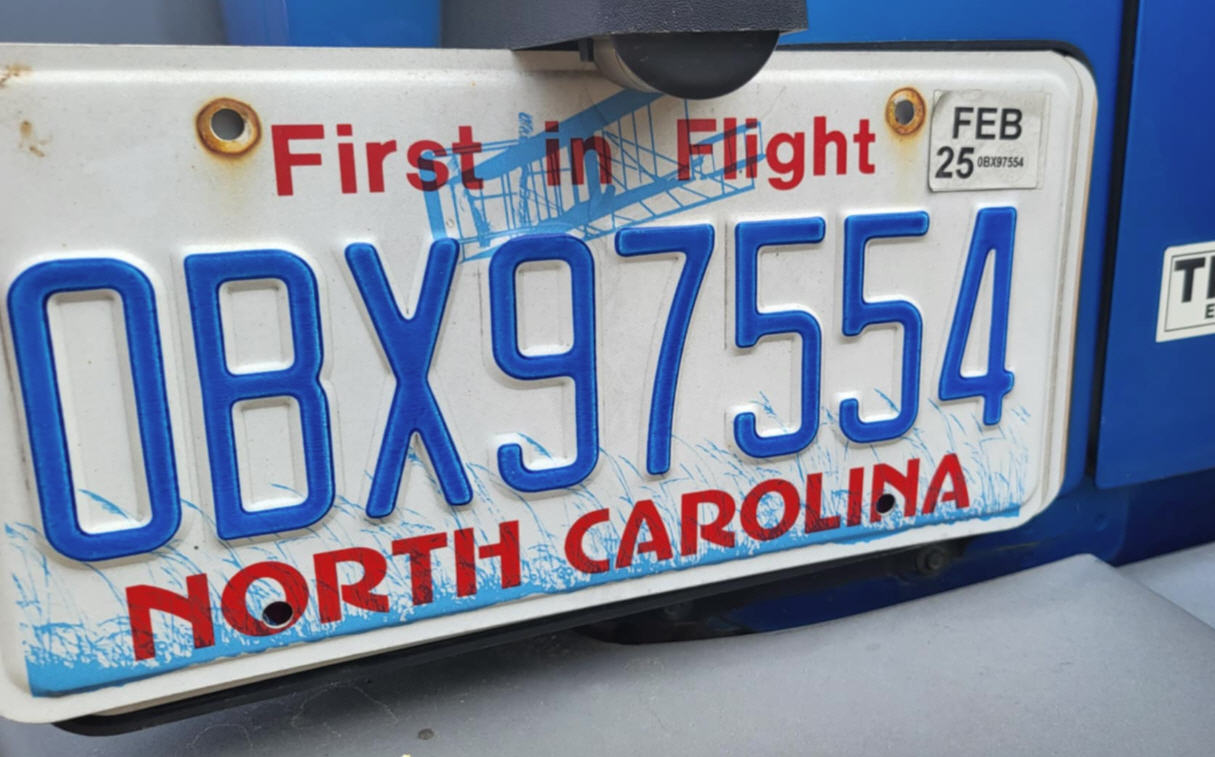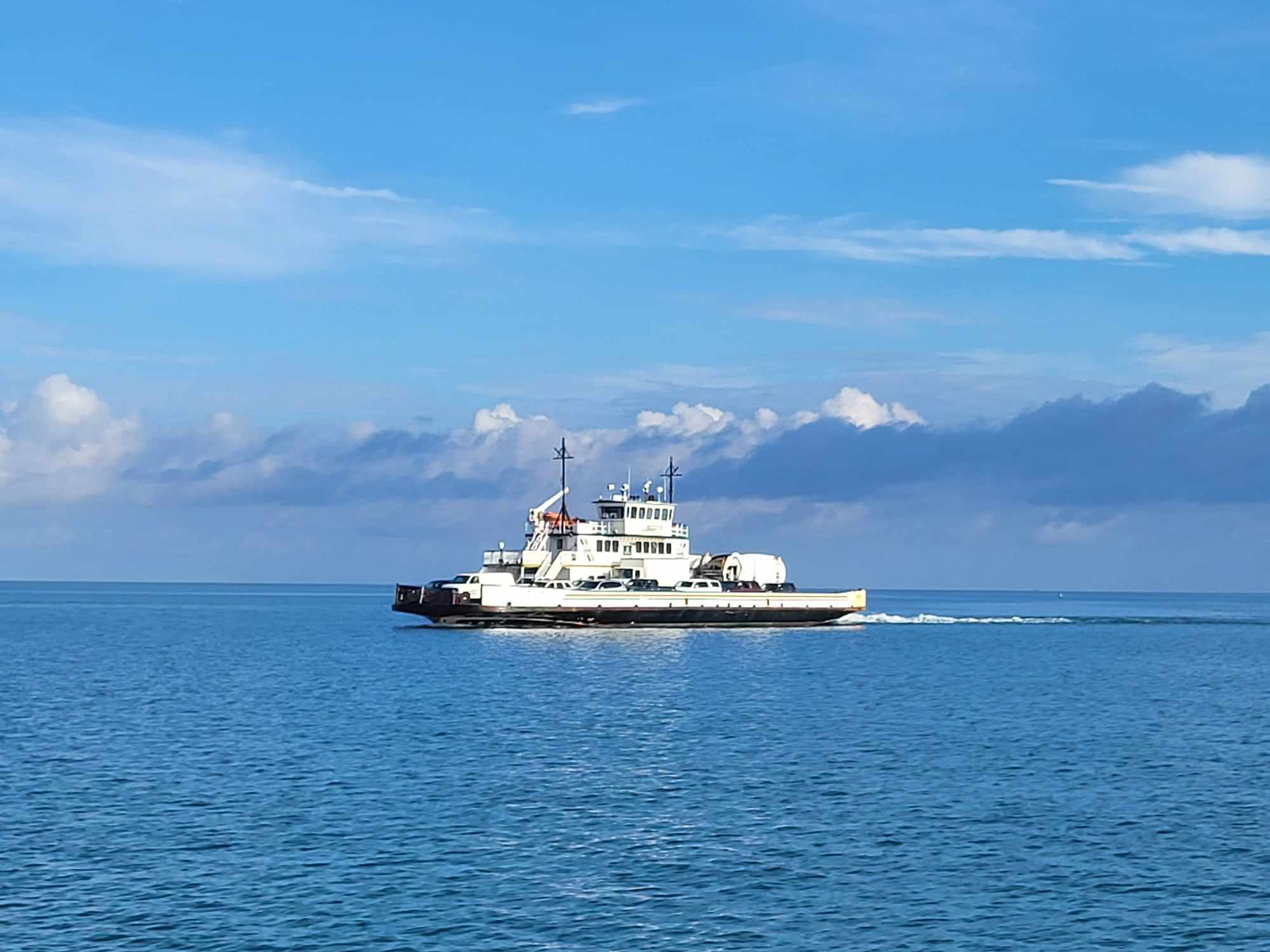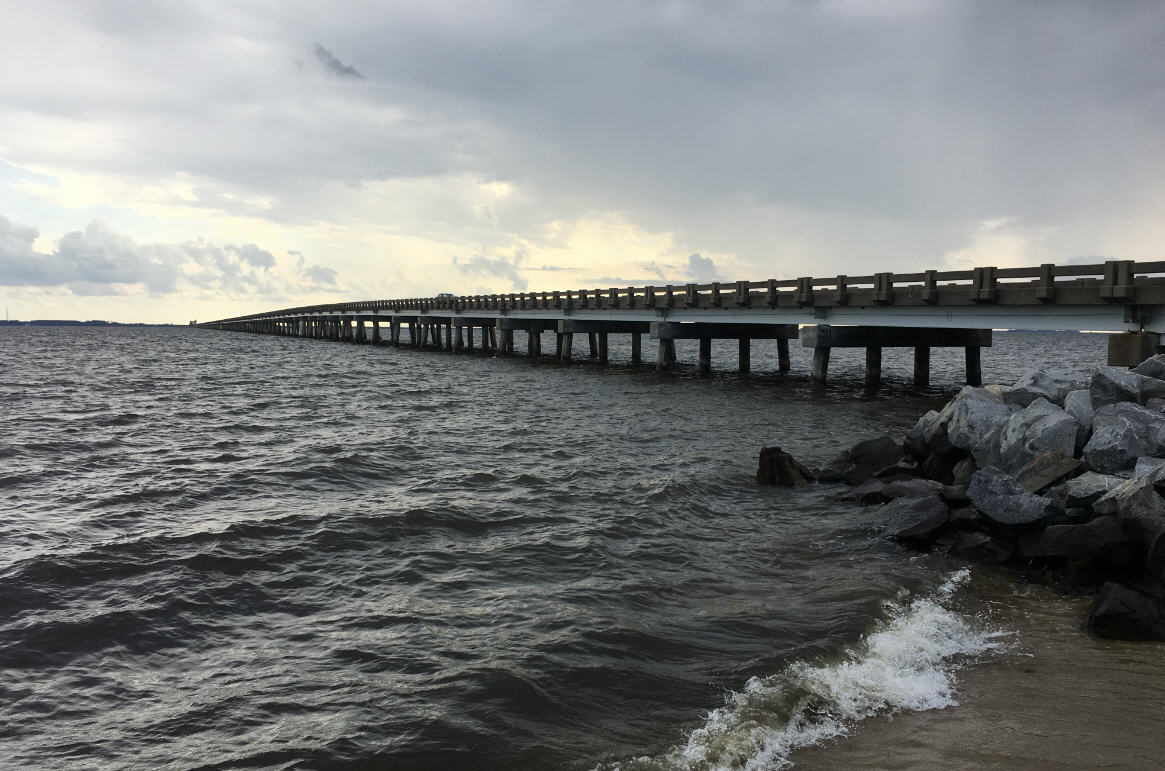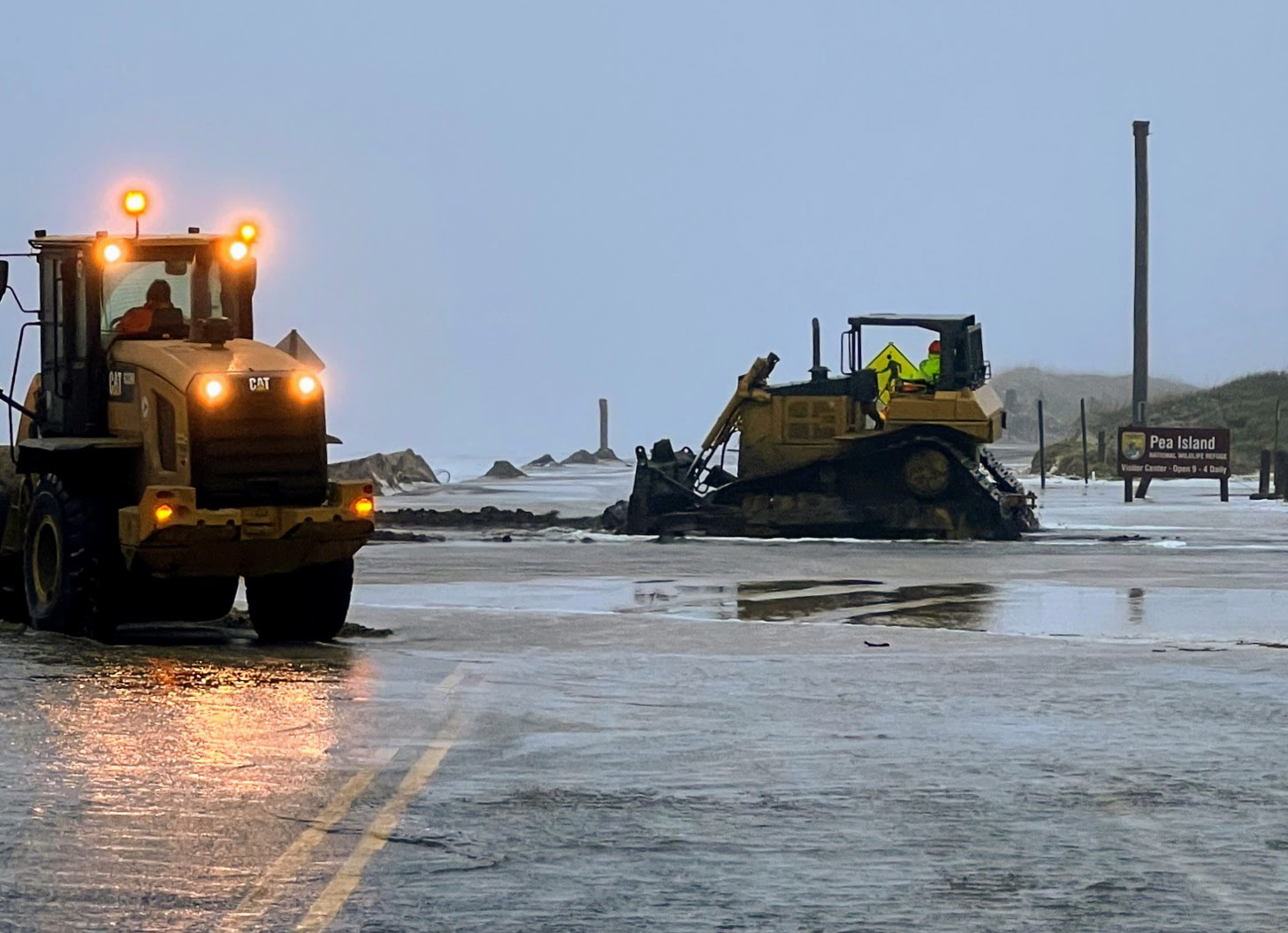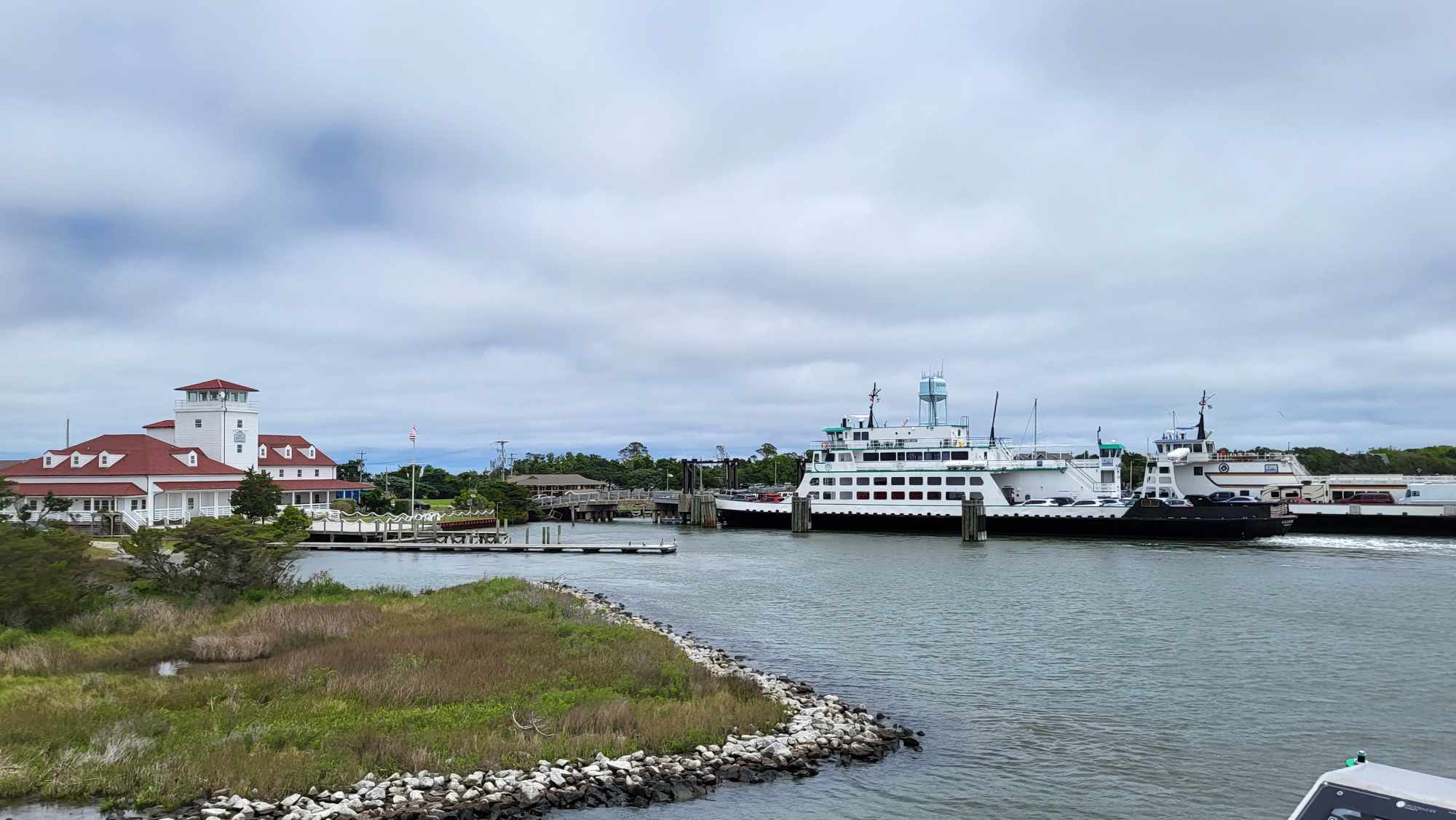Coast Guard rescues sailors 30 miles off Cape Hatteras
The Coast Guard rescued two sailors after their 49-foot sailing vessel began taking on water approximately 30 miles east of the coast of Cape Hatteras on Monday, June 4.
At approximately 3 a.m., a crewmember aboard the Devil Slander contacted watchstanders at Coast Guard Sector North Carolina and reported that they were disabled, adrift, taking on water, and in need of assistance.
Watchstanders at the sector diverted the crew aboard the Coast Guard Cutter Block Island from their transit to the Coast Guard Yard in Baltimore.
The crew aboard the sailing vessel lit a flare, aiding the crew of the Block Island to identify their exact position.
The Block Island’s crew was also aided by a good Samaritan aboard the sailing yacht Islandia, who was around Cape Hatteras at the time of the case.
“The crew of the Islandia spent more than three hours communicating with us and the Devil Slander in a selfless effort to locate and assist the distressed sailors,” said Ensign Paul Junghans, a crewmember aboard the Block Island and the officer of the deck during the search and rescue case. “The contributions of civilian mariners, like the crew aboard the Islandia, in cases like these are absolutely invaluable and greatly appreciated by the Coast Guard.”
A rescue and assistance team from the Block Island was launched aboard the cutter’s small boat to aid the sailors. Two crewmembers from the team boarded the Devil Slander and were able to control the flooding and use the emergency dewatering pump they delivered to remove the water from the boat’s bilge.
The flooding damaged the sailing vessel’s electrical system, which kept the engine from starting and prevented the use of the electronic auto-furl sails.
A multiple Coast Guard unit towing evolution was required to get the Devil Slander to the safe haven of Beaufort, N.C., the inlet that would best accommodate the vessel’s 7-foot draft and 75-foot mast.
The crew aboard the Block Island remained on scene until a crew from Coast Guard Station Oregon Inlet arrived aboard a 47-foot Motor Life Boat. That crew later handed off the tow to a crew from Coast Guard Station Hatteras Inlet, in North Carolina, aboard a different 47-foot Motor Life Boat. Finally that crew met with the crew aboard the Coast Guard Cutter Staten Island, a 110-foot patrol boat homeported in Atlantic Beach, N.C., which towed the Devil Slander to Beaufort.
“The Block Island is one of the Coast Guard’s 40 aging island-class 110-foot patrol boats,” said Lt. Joseph “Grant” Thomas, the commanding officer of the Block Island. “Having been in service for more than 20 years, we are currently headed for dry-dock repairs due to the cutter’s aging systems. These patrol boats are being replaced by new, Sentinel-class fast response cutters. The FRCs will be capable of speeds in excess of 28 knots, better sea keeping and more advanced technology to assist mariners in distress including a stern launch small boat system that will save time when responding to search and rescue cases like this one. The speed and more advanced systems of the FRCs will not only deliver tremendous lifesaving capabilities, but it will also increase the fleet’s law enforcement and homeland security capability.”
“It was extremely rewarding to assist mariners in distress who were very concerned about the seaworthiness of their vessel,” said Petty Officer 2nd Class Justin Mullinax, a machinery technician aboard the Coast Guard Cutter Block Island and a rescue and assistance team member who aided the crew of the Devil’s Slander. “We don’t get to use our emergency dewatering pumps very often, so when we do, it feels good knowing that we were able to save someone’s boat from sinking.”
The Coast Guard rescued two sailors after their 49-foot sailing vessel began taking on water approximately 30 miles east of the coast of Cape Hatteras on Monday, June 4.
At approximately 3 a.m., a crewmember aboard the Devil Slander contacted watchstanders at Coast Guard Sector North Carolina and reported that they were disabled, adrift, taking on water, and in need of assistance.
Watchstanders at the sector diverted the crew aboard the Coast Guard Cutter Block Island from their transit to the Coast Guard Yard in Baltimore.
The crew aboard the sailing vessel lit a flare, aiding the crew of the Block Island to identify their exact position.
The Block Island’s crew was also aided by a good Samaritan aboard the sailing yacht Islandia, who was around Cape Hatteras at the time of the case.
“The crew of the Islandia spent more than three hours communicating with us and the Devil Slander in a selfless effort to locate and assist the distressed sailors,” said Ensign Paul Junghans, a crewmember aboard the Block Island and the officer of the deck during the search and rescue case. “The contributions of civilian mariners, like the crew aboard the Islandia, in cases like these are absolutely invaluable and greatly appreciated by the Coast Guard.”
A rescue and assistance team from the Block Island was launched aboard the cutter’s small boat to aid the sailors. Two crewmembers from the team boarded the Devil Slander and were able to control the flooding and use the emergency dewatering pump they delivered to remove the water from the boat’s bilge.
The flooding damaged the sailing vessel’s electrical system, which kept the engine from starting and prevented the use of the electronic auto-furl sails.
A multiple Coast Guard unit towing evolution was required to get the Devil Slander to the safe haven of Beaufort, N.C., the inlet that would best accommodate the vessel’s 7-foot draft and 75-foot mast.
The crew aboard the Block Island remained on scene until a crew from Coast Guard Station Oregon Inlet arrived aboard a 47-foot Motor Life Boat. That crew later handed off the tow to a crew from Coast Guard Station Hatteras Inlet, in North Carolina, aboard a different 47-foot Motor Life Boat. Finally that crew met with the crew aboard the Coast Guard Cutter Staten Island, a 110-foot patrol boat homeported in Atlantic Beach, N.C., which towed the Devil Slander to Beaufort.
“The Block Island is one of the Coast Guard’s 40 aging island-class 110-foot patrol boats,” said Lt. Joseph “Grant” Thomas, the commanding officer of the Block Island. “Having been in service for more than 20 years, we are currently headed for dry-dock repairs due to the cutter’s aging systems. These patrol boats are being replaced by new, Sentinel-class fast response cutters. The FRCs will be capable of speeds in excess of 28 knots, better sea keeping and more advanced technology to assist mariners in distress including a stern launch small boat system that will save time when responding to search and rescue cases like this one. The speed and more advanced systems of the FRCs will not only deliver tremendous lifesaving capabilities, but it will also increase the fleet’s law enforcement and homeland security capability.”
“It was extremely rewarding to assist mariners in distress who were very concerned about the seaworthiness of their vessel,” said Petty Officer 2nd Class Justin Mullinax, a machinery technician aboard the Coast Guard Cutter Block Island and a rescue and assistance team member who aided the crew of the Devil’s Slander. “We don’t get to use our emergency dewatering pumps very often, so when we do, it feels good knowing that we were able to save someone’s boat from sinking.”
The Coast Guard rescued two sailors after their 49-foot sailing vessel began taking on water approximately 30 miles east of the coast of Cape Hatteras on Monday, June 4.
At approximately 3 a.m., a crewmember aboard the Devil Slander contacted watchstanders at Coast Guard Sector North Carolina and reported that they were disabled, adrift, taking on water, and in need of assistance.
Watchstanders at the sector diverted the crew aboard the Coast Guard Cutter Block Island from their transit to the Coast Guard Yard in Baltimore.
The crew aboard the sailing vessel lit a flare, aiding the crew of the Block Island to identify their exact position.
The Block Island’s crew was also aided by a good Samaritan aboard the sailing yacht Islandia, who was around Cape Hatteras at the time of the case.
“The crew of the Islandia spent more than three hours communicating with us and the Devil Slander in a selfless effort to locate and assist the distressed sailors,” said Ensign Paul Junghans, a crewmember aboard the Block Island and the officer of the deck during the search and rescue case. “The contributions of civilian mariners, like the crew aboard the Islandia, in cases like these are absolutely invaluable and greatly appreciated by the Coast Guard.”
A rescue and assistance team from the Block Island was launched aboard the cutter’s small boat to aid the sailors. Two crewmembers from the team boarded the Devil Slander and were able to control the flooding and use the emergency dewatering pump they delivered to remove the water from the boat’s bilge.
The flooding damaged the sailing vessel’s electrical system, which kept the engine from starting and prevented the use of the electronic auto-furl sails.
A multiple Coast Guard unit towing evolution was required to get the Devil Slander to the safe haven of Beaufort, N.C., the inlet that would best accommodate the vessel’s 7-foot draft and 75-foot mast.
The crew aboard the Block Island remained on scene until a crew from Coast Guard Station Oregon Inlet arrived aboard a 47-foot Motor Life Boat. That crew later handed off the tow to a crew from Coast Guard Station Hatteras Inlet, in North Carolina, aboard a different 47-foot Motor Life Boat. Finally that crew met with the crew aboard the Coast Guard Cutter Staten Island, a 110-foot patrol boat homeported in Atlantic Beach, N.C., which towed the Devil Slander to Beaufort.
“The Block Island is one of the Coast Guard’s 40 aging island-class 110-foot patrol boats,” said Lt. Joseph “Grant” Thomas, the commanding officer of the Block Island. “Having been in service for more than 20 years, we are currently headed for dry-dock repairs due to the cutter’s aging systems. These patrol boats are being replaced by new, Sentinel-class fast response cutters. The FRCs will be capable of speeds in excess of 28 knots, better sea keeping and more advanced technology to assist mariners in distress including a stern launch small boat system that will save time when responding to search and rescue cases like this one. The speed and more advanced systems of the FRCs will not only deliver tremendous lifesaving capabilities, but it will also increase the fleet’s law enforcement and homeland security capability.”
“It was extremely rewarding to assist mariners in distress who were very concerned about the seaworthiness of their vessel,” said Petty Officer 2nd Class Justin Mullinax, a machinery technician aboard the Coast Guard Cutter Block Island and a rescue and assistance team member who aided the crew of the Devil’s Slander. “We don’t get to use our emergency dewatering pumps very often, so when we do, it feels good knowing that we were able to save someone’s boat from sinking.”
Subject
Name
(required, will not be published)
(required, will not be published)
City :
State :
Your Comments:
May be posted on the Letters to the Editor page at the discretion of the editor.
May be posted on the Letters to the Editor page at the discretion of the editor.
May be posted on the Letters to the Editor page at the discretion of the editor.
May be posted on the Letters to the Editor page at the discretion of the editor.





